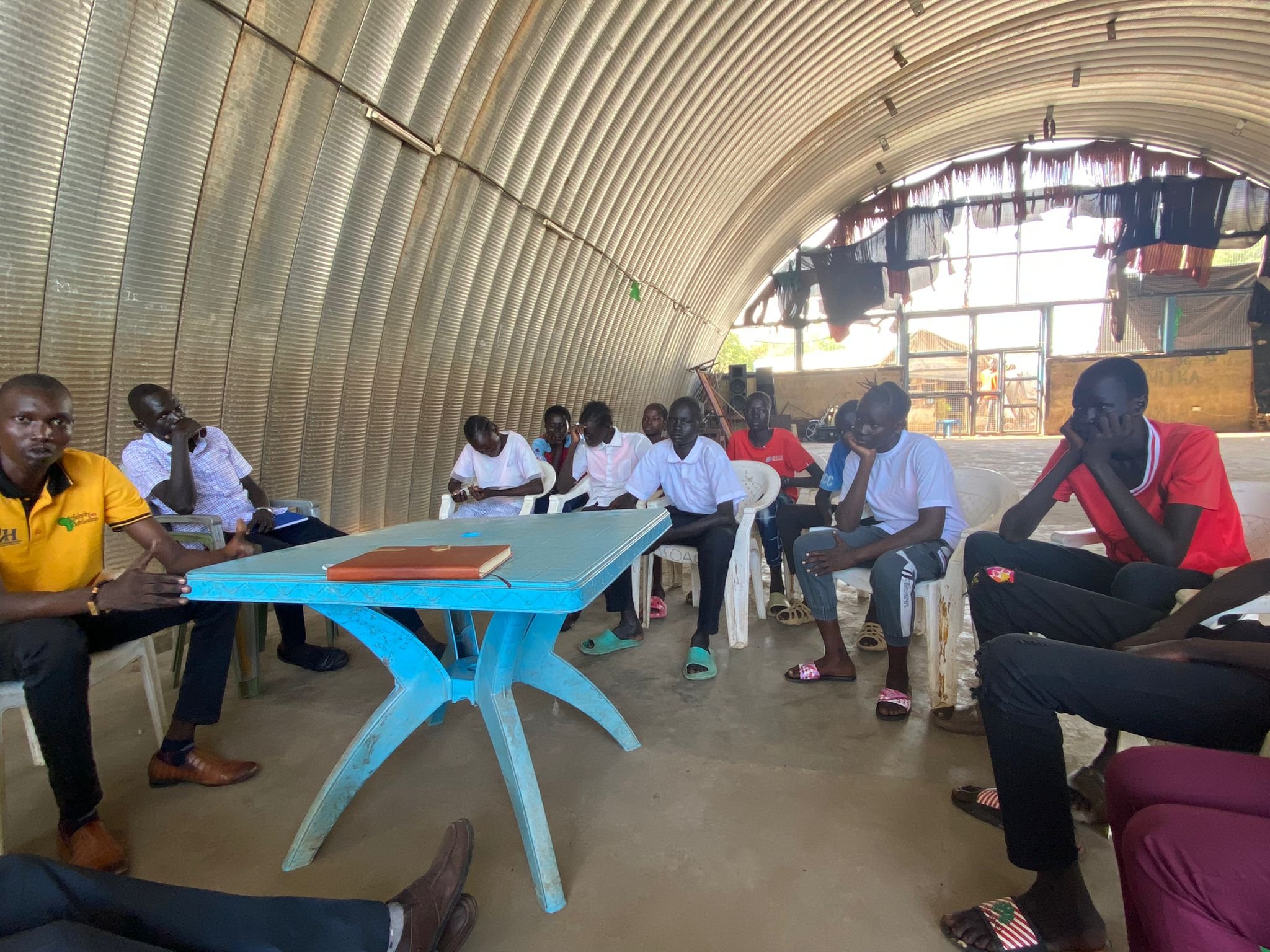Church Working for Peace in South Sudan
The welcoming of the Pope to South Sudan can be seen as a response by all sectors of that society to the Church’s efforts to bring about a lasting peace.
By James Bradshaw
Good Shepherd Peace Centre in Kit, near Juba. (Credit: Aid to the Church in Need)
In religion, South Sudan presents a complex case. It has not been possible to conduct a census since independence, but it is estimated that there are over 11 million people divided into 64 ethnic groups. A majority are Christian, but perhaps a third of South Sudanese people still hold to indigenous religions, with a good deal of syncretism existing.
Malakal Cathedral, damaged in fighting during 2013/2014. (Credit: Aid to the Church in Need)
More than half a century of heavy-handed rule by the Islamic government of Sudan left a legacy of large mosques but relatively few Muslims. Although English is now favoured, Arabic remains the lingua franca that is understood by most people, with Mass often being celebrated in it.
The civil war which erupted in 2013 is also hard to describe succinctly. The two main political figures (President Salva Kiir and First Vice President Riek Machar) belong to the two largest tribes: the Dinka and the Nuer. However, it would be wrong to assume that they control all militants within their own tribes, or that these are the only two tribes given to violence.
Intra-tribal conflict is a problem in the same way that inter-tribal conflict is. The pastoral model of agriculture, the communal land and disagreement over tribal boundaries, and the lack of physical boundaries to delineate ownership: all of this makes conflict almost inevitable, particularly in a context where war has been taking place since the 1950s with little interruption.
This is the context in which the Church must serve as mediator, just as it has again and again over two millennia.
Young people at trauma counselling at a refugee camp outside of Juba. (Credit: Aid to the Church in Need)
Pope Francis has invested much in promoting reconciliation, inviting Kiir, Machar and other leaders to the Vatican in 2019 for a spiritual retreat and kissing their feet while begging for peace. His gesture represented a continuation of the Church’s long work before this.
Hilde Johnson is a former Norwegian politician who was serving as Head of the UN Mission in South Sudan when the civil war broke out. In her account of this period, she was quick to note the power of the Christian churches to restrain the worst impulses of South Sudan’s feuding factions. “The church in South Sudan carries a lot of weight. Throughout the civil war, the clergy played important roles in reconciling Southern factions and communities, and they ran ‘people-to-people’ peace processes that yielded impressive results,” she wrote.
A powerful example of this moral leadership was seen in the example of Sister Cathy Arata, an American nun who began the ‘101 Days of Prayer’ initiative in the run-up to the referendum on independence, which many feared would lead to a violent backlash.
Holy Mass at Malakal refugee camp. (Credit: Aid to the Church in Need)
People from all across the country quickly became involved, and the acceptance by the Sudanese government of the resounding independence vote was one of the few positive developments in recent years. No matter how successful the papal visit is, the process of national reconciliation will take generations.
But progress is possible. In the Malakal refugee camp where 54,000 displaced people live, a small metal-roofed church attracts upwards of 1,000 parishioners to Mass each Sunday. This is the Catholic parish, and unlike other churches in the sprawling camp, it includes parishioners from both the Nuer and Shilluk tribes who are housed there.
When asked what the Pope’s visit means to the people, the parish priest of Malakal refugee camp, Fr. Mike Bassano, emphasises this issue of reconciliation. “It would certainly focus on the need for unity and peace. The Pope has always prayed for the people of South Sudan, and they know that they are not forgotten,” he said.




